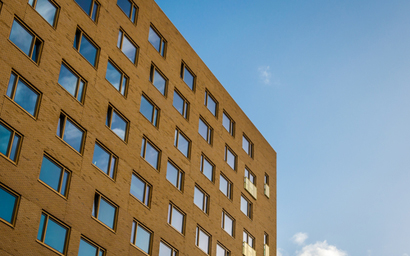Two property investment experts give insights into sustainable real estate and which real estate investment areas run the risk of becoming stranded assets.
TRULS NERGAARD, HEAD OF NORDIC REAL ESTATE, STOREBRAND ASSET MANAGEMENT
The momentum around sustainability is undeniable. Climate change, population growth and urbanisation are all issues shifting the landscape and expectations on the industry. The real estate business is maturing quickly as we see increasing pressure from both public and private [investors] to address issues related to sustainability and climate. A sustainable approach in real estate is important for the wellbeing of individuals and healthy communities – but also for increasing the value of the real estate.
Sustainability in general has had a strong focus for many years in the Nordics and both investors and tenants increasingly demand that the offering is sustainable. We see a clear and increased demand for green buildings, both in transactions among investors and on the tenant market as more stakeholders realise that it is not just about safeguarding our future, it also increases the appeal and value of the communities, the real estates, and the investments.
As a consequence, there is more scrutinising on sustainability, due diligence and demand for information on practices and performance. This requires increased collaboration with the tenants to integrate environmental issues and make green practices part of the business plan and in some ways to rethink the business. The EU taxonomy will most probably contribute further to accelerating development on a larger scale.
The challenges and the opportunities are many in the real estate space. Properties in general provide an attractive risk-adjusted return, but the demand is greater than the supply. When you add the sustainability dimension, the range becomes even smaller.
THOMAS BALASHEV, FOUNDER OF MONTAGUE REAL ESTATE AND CO-FOUNDER OF MONTA CAPITAL
Over the last 12 months following the outbreak of Covid-19, the commercial market has been extremely volatile for several reasons. Firstly, the reduction of footfall across UK high streets due to national lockdowns and the working from home phenomenon, combined with the rise in e-commerce giants has fed various tragedies including Debenhams and Arcadia. These and others have not been able to navigate through the pandemic due to large overheads and are left with huge store portfolios.
Traditionally, the term distressed would often be referred to as a derelict building – however, this is not always the case. These assets, often in prime locations, will require a strategic repositioning within the market to regenerate high streets, communities and develop with socio-economic trends.
Read more about real estate investment here: Global real estate: Beds, sheds and meds
© 2021 funds europe





